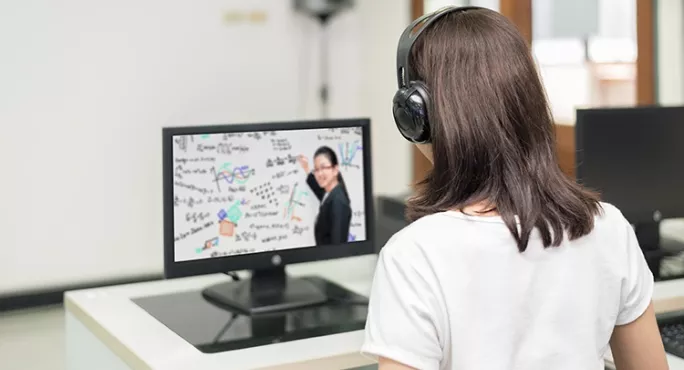Flipped learning leads to a “small amount” of additional progress for primary school pupils, Tes can reveal.
The first ever UK-based research into flipped learning in a school setting - exclusively shared with Tes - shows that those who use the ed-tech intervention make about one month’s extra progress.
However, with the intervention costing about £150 per pupil without taking into account hardware costs, critics have questioned whether the increasingly popular teaching technique represents value for money.
As its name suggests, the idea of flipped learning is to turn traditional classroom education on its head.
The “teacher talk” part of the lesson is delivered at home using technology such as iPads and laptops, leaving the teacher free to use classroom time to help students apply concepts, rather than explaining them.
The Education Endowment Foundation has shared with Tes the findings of a new trial - the first time robust evidence has been collected in the UK about the impact of flipped learning in a school setting.
The EEF looked at “MathsFlip”, a flipped learning intervention that aims to improve the maths attainment of pupils in Years 5 and 6.
The programme was developed by Shireland Collegiate Academy, a secondary school in the West Midlands that is one of the leading schools in the country in its use of technology.
Twenty-four schools took part in the study, with 12 schools being supported by Shireland to adopt MathsFlip and the other 12 acting as “control schools”, carrying on their maths lessons as normal.
Pupils took home laptops and learned core maths content at home, before coming into school and participating in activities to reinforce their learning. They were tested before the intervention in Year 5 and again a year later in Year 6 with Sats.
According to the EEF’s research, the pupils taught using MathsFlip “made a small amount of additional progress” in key stage 2 maths, “equivalent to about one month”.
The impact on results for pupils eligible for free school meals was slightly higher at two months, but the EEF said this finding was “less secure” than its overall findings owing to the smaller number of FSM pupils in the research.
While flipped learning resulted in progress, its cost was estimated at £147 per pupil per year. Crucially, that figure did not include expenditure related to hardware: the schools were supplied with 30 laptops each, at a cost of £5,667 per school.
John Blake, head of education and social reform at the Policy Exchange thinktank, said he did not believe that flipped learning offered value for money.
“Is this money, is this time, is this resource the best way to get this outcome? I would think the answer is certainly no,” he said.
However, Kirsty Tonks, principal designate at Shireland Technology Primary School in the West Midlands and one of the project directors who rolled out the programme to the 12 test schools, said the impact of flipped learning would have been more pronounced if the study, conducted between 2014 and 2015, had not coincided with a shake-up of the maths curriculum.
“The project, unfortunately for us, came at a time when there was huge change with the curriculum,” she said. “Teachers were distracted, because there was so much disruption.”
This is an edited article from the 10 November edition of Tes. Subscribers can read the full article here. This week’s Tes magazine is available in all good newsagents. To download the digital edition, Android users can click here and iOS users can click here





